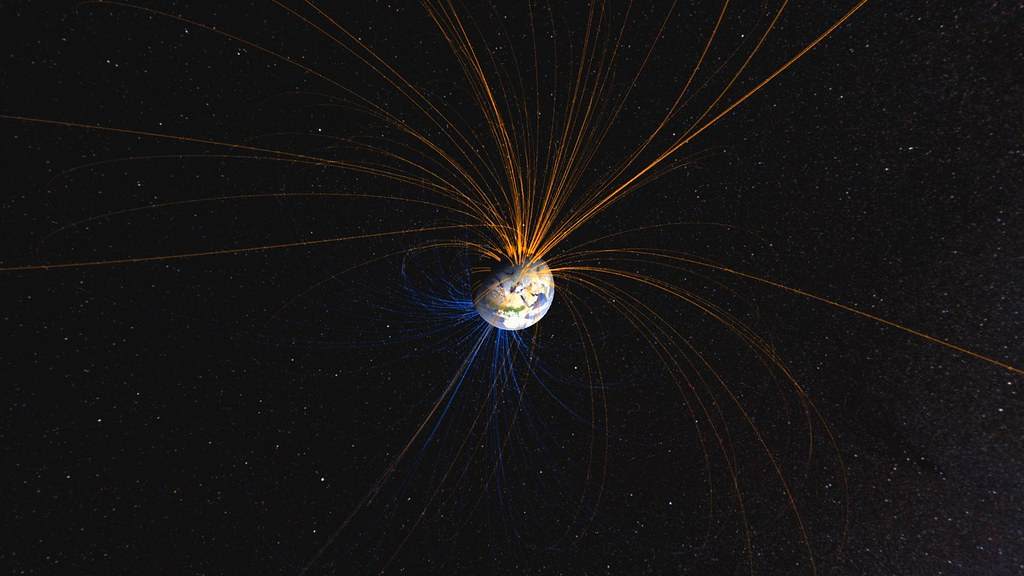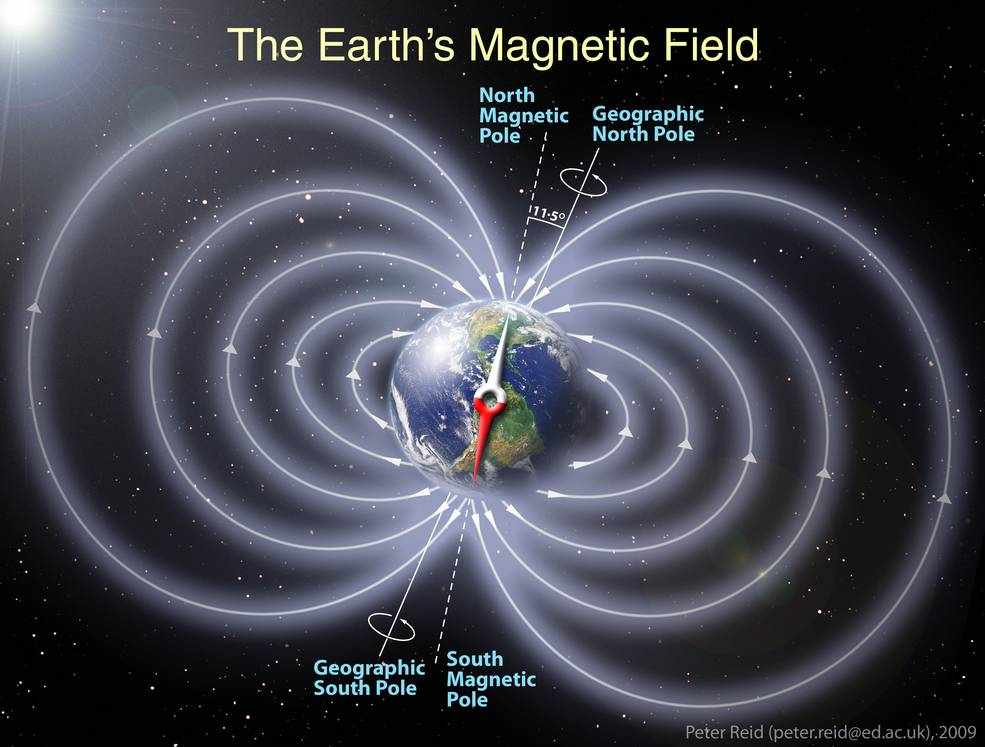One of the things we utilize regularly is magnets. It is self-evident that they play a critical part in our lives. Magnets are used in a variety of applications due to their magnetic capabilities. Magnets, computers, MRI equipment, toys, credit cards, and so on.
It’s found on a variety of gadgets that we use every day. Permanent magnets and temporary magnets are classified according to their magnetic characteristics and composition. Magnets and electromagnets are two types of magnets. Some magnets are visible on the devices in which they are employed, while others are affixed to the device’s inside.
Earth, unlike Venus, and Mars, is encircled by a massive magnetic field known as the magnetosphere. Our magnetosphere protects us from the solar wind (charged particles that our Sun constantly spews at us), erosion, and cosmic rays from coronal mass (massive clouds of energetic and Cosmic rays from outer space, as well as magnetized solar plasma and radiation.
It is shaped by the world’s most powerful and dynamic forces. Our magnetosphere works as a gatekeeper, preventing harmful radiation from reaching the Earth’s surface by trapping it in the Van Allen Belts, which are two doughnut-shaped zones positioned at a safe distance from the surface.
How does the Earth’s Magnetic Field Affect Life on Earth? will be discussed in this article. So, to satisfy your interest, let us jump right into the matter.
Origins of Life on Earth and the magnetic Field
The magnetic field is assumed to not only safeguard life on Earth but also to have played a role in its emergence, both directly and indirectly. Its indirect role is linked to the environment’s stabilizing impact throughout the development of life. This involves safeguarding the atmosphere and, as a result, keeping generally constant environmental characteristics, such as decreased temperature variation and liquid water, as well as the oxidizing atmosphere and the ozone layer.
Related: How do we know What lies in the center of the earth? Can we reach there?
What Function Do Magnets Have in Our Everyday Lives?
Electronics and Computers:
Magnets are incorporated into the guts of most computers. It aids in the storage of data on the computer’s hard disc. The device’s magnet aids in changing the direction of magnetic material on the hard drive in various portions that contain computer data. To read the data, the computer scans the direction of each portion of the magnetic substance. Magnets may also be found in small speakers, radios, and televisions, which are all commonplace in our lives.
Other Industries and Electric Energy:
Magnets are one of the most significant components utilized in the manufacturing business. Electrical generators employ magnets to transform mechanical energy to electricity and vice versa. Electromagnets are used in the recycling process to catch massive chunks of metal weighing thousands of kilograms. Furthermore, magnets are employed in mines to extract metallic ores from broken rock. Magnets are also used to recover tiny particles of metal from grains and other food components in food processing plants. As you can see, magnets are beneficial to both the industrial sector and ourselves.
Medicine and Health:
In addition to science, magnets are employed in medicine. Magnets are used to operate equipment like MRI machines. Magnets are utilized in the treatment of cancer, in addition to medical gadgets. A magnetically sensitive fluid is injected into the patient’s body, and heat is generated in the body using a strong magnet. The heat produced aids in the killing of cancer cells while causing no harm to the body’s organs.
In your own home:
Most of the equipment we use in our house includes magnets, which you may not be aware of. Refrigerators, vacuum cleaners, credit cards, telephones, doorbells, and other electronic devices are examples.
Magnets are obviously a crucial aspect of the electronics we use in our everyday lives, thus they are highly significant to us.
Also read: What will happen if Oxygen doubled on Earth?
What role does a magnet play in our daily lives?
Magnetics is one of the most significant elements used in the industry sector. Electric energy and other industries: Magnets are one of the most important elements used in the industry sector. Generators employ magnets to transform mechanical energy into electricity and vice versa. Magnets are used to operate equipment like MRI machines.
What Would Happen if the Earth’s Magnetic Field Vanished?
The planet’s magnetic field stretches out like invisible spaghetti from Earth. This field is crucial for everyday living because it shields the globe from solar particles, serves as a navigational aid, and may have had a role in the evolution of life on Earth. It is created by the churn of Earth’s core.
But what if the magnetic field of the Earth vanished tomorrow? A greater amount of charged solar particles would assault the globe, causing electricity systems and satellites to malfunction, as well as increasing human exposure to cancer-causing UV light. To put it another way, the lack of a magnetic field would have bad consequences, but not necessarily apocalyptic consequences, at least in the short term.
That’s good news because it’s been deteriorating for more than a century. Even now, there are certain particularly weak regions, such as the South Atlantic Anomaly in the Southern Hemisphere, that provide technical difficulties for low-orbiting satellites.
Conclusion
The magnetic field of the Earth is assumed to have a key role in making the planet livable. A magnetic field not only guides the movements of our compass needles but also acts as a shield, deflecting solar wind that would otherwise erode the atmosphere.
The magnetic field that surrounds the Earth is an intangible yet formidable barrier. This is what enables the aurora to flicker in the skies at the Polar caps, as well as safeguarding life on Earth from the powerful stream of solar particles sent flying across the solar system by our Sun.


